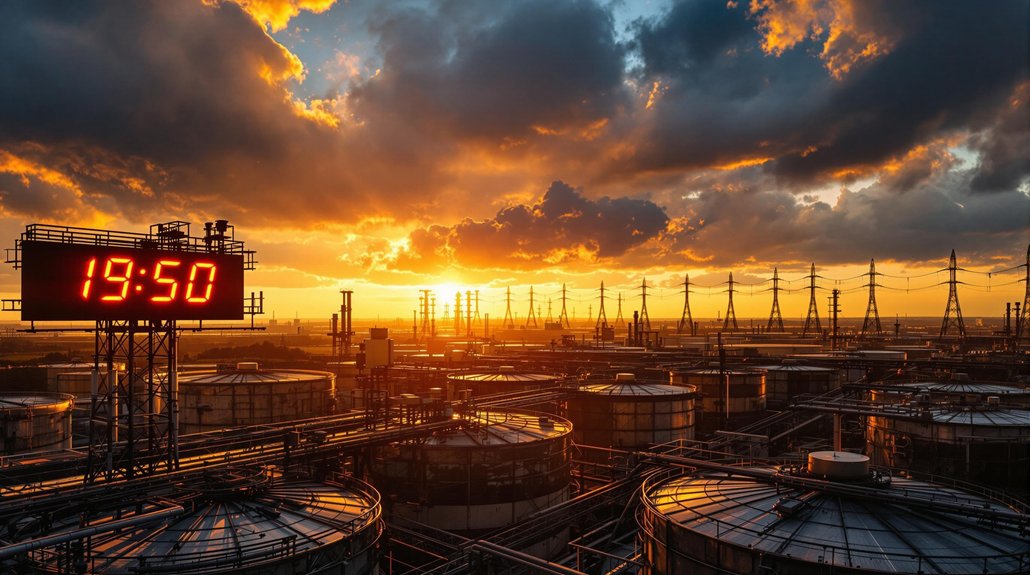Putin’s surprise 30-day energy truce sent oil markets into a tailspin. WTI crude dropped 68 cents to $66.90, while Brent fell 51 cents to $70.56 per barrel. The deal, brokered after Trump’s proposal, pauses attacks on energy infrastructure—not a full ceasefire. Ukraine, with half its power grid destroyed, remains cautious. Russian drones struck again shortly after the announcement. The truce’s true motives might shock observers.
While global oil markets breathed a collective sigh of relief, Vladimir Putin struck a limited energy truce with Donald Trump on Tuesday, sending crude prices sliding. The Russian president agreed to a 30-day halt on energy infrastructure attacks following Trump’s proposal. Not a full ceasefire, mind you. Just energy stuff.
The impact hit oil markets immediately. WTI crude tumbled 68 cents to $66.90 per barrel. Brent dropped 51 cents to $70.56. Traders love nothing more than the faintest whiff of peace, apparently.
For Ukraine, this could be a lifeline. Their energy grid is in tatters – over half of generation capacity destroyed, half of natural gas production compromised. But let’s not kid ourselves. This won’t rebuild the Kakhovka Dam that Russia blew up last year.
Putin isn’t doing this out of kindness. Experts say Russia probably benefits more than Ukraine from this pause. Classic Putin move. His own infrastructure is vulnerable, and winter’s coming. Plus, it gives his troops time to keep advancing in eastern Ukraine without those pesky infrastructure concerns.
Zelenskyy’s response? Cautious at best. Ukraine acknowledged the potential benefits but reported fresh Russian drone attacks shortly after the agreement. Talk about mixed signals. The Ukrainian president has emphasized the need for Ukraine’s direct involvement in any discussions that could lead to a fair peace.
The deal also includes starting negotiations for a maritime ceasefire in the Black Sea. Oh, and Putin casually demands that foreign military aid to Ukraine stops. Convenient timing.
America’s allies aren’t exactly thrilled. Poland, Lithuania, Latvia, and Estonia – countries that know a thing or two about Russian promises – remain skeptical. Many fear this is just Putin playing the long game. Natural gas prices actually increased by 4 cents to $4.06, showing not all energy markets responded the same way.
Oil traders might be celebrating, but front-line nations are holding their breath. This “very small step forward” could easily become two steps back.
Meanwhile, the Zaporizhzhia nuclear plant remains in Russian hands, and half of Ukraine sits in darkness.
Sometimes a ceasefire isn’t really about peace. It’s about catching your breath before the next round.







